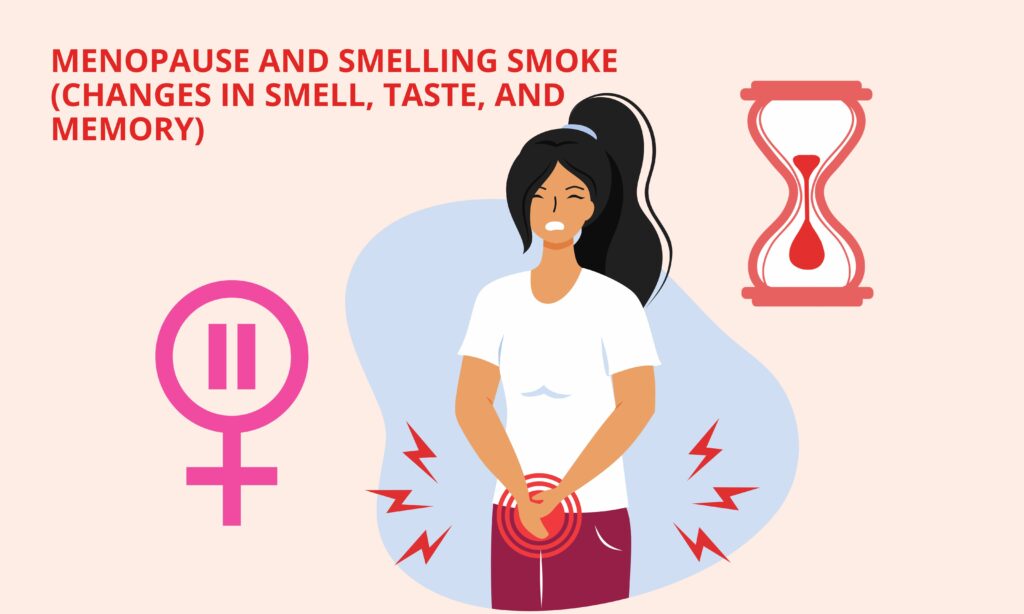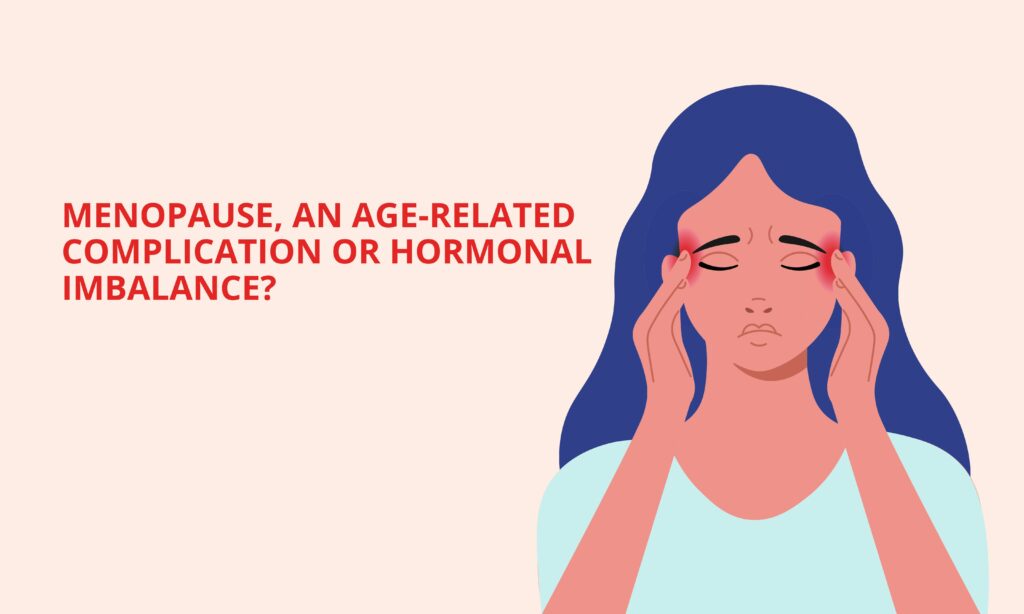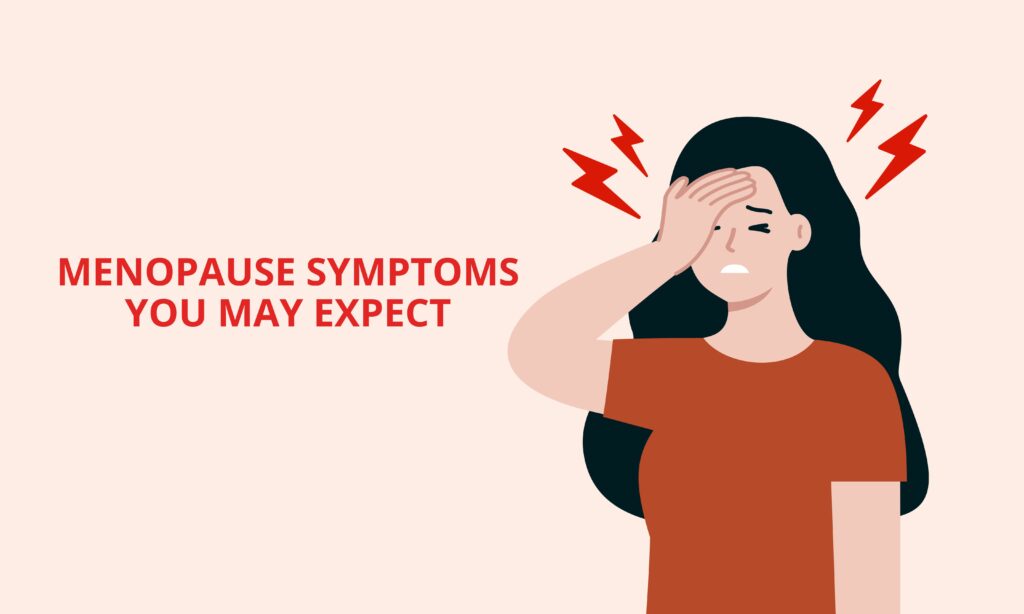
Menopause is a natural biological process that marks the end of a woman’s reproductive years. It is characterized by a significant decrease in the production of hormones such as estrogen and progesterone, which can lead to a variety of symptoms, including changes in smell, taste, and memory. One of the most concerning symptoms that some women experience during menopause is smelling smoke when there is no actual fire or smoke present.
Hormones play a critical role in the function of the brain, and changes in hormone levels can have a significant impact on cognitive function. During menopause, the decrease in estrogen levels can cause changes in the structure and function of the brain, leading to a decline in memory and other cognitive abilities. Some women may also experience changes in taste and smell perception as a result of hormonal fluctuations.
Smelling smoke is a relatively common experience during menopause, and it is often referred to as phantosmia. It is believed to be caused by changes in the olfactory system, which is responsible for our sense of smell. As hormone levels fluctuate during menopause, the sensitivity of the olfactory system can be altered, leading to unusual or distorted perceptions of smell.
There are several strategies that women can use to manage the symptoms of menopause and reduce the likelihood of experiencing phantosmia. Hormone replacement therapy (HRT) is a commonly prescribed treatment that can help to alleviate the symptoms of menopause, including changes in smell, taste, and memory. Lifestyle changes, such as maintaining a healthy diet, regular exercise, and stress reduction, can also be effective in reducing the severity of menopausal symptoms.
In conclusion, hormonal changes during menopause can have a significant impact on a woman’s sense of smell, taste, and memory. Smelling smoke when there is no actual fire or smoke present is a common experience during menopause, and it is believed to be caused by changes in the olfactory system. Women can manage the symptoms of menopause through a combination of hormone replacement therapy, lifestyle changes, and other interventions. If you are experiencing unusual symptoms during menopause, talk to your healthcare provider to determine the best course of treatment for your individual needs.
Menopause, an age-related complication or hormonal imbalance?

Menopause is a natural biological process that marks the end of a woman’s reproductive years. It is caused by a decrease in the production of hormones such as estrogen and progesterone, which can lead to a variety of symptoms, including changes in smell, taste, and memory. While menopause is a normal part of aging, it can also be caused by hormonal imbalances or other medical conditions.
Hormonal imbalances can occur at any age and can lead to a variety of health problems. In women, hormonal imbalances can cause irregular periods, mood swings, and changes in weight. Hormonal imbalances can also contribute to the development of conditions such as polycystic ovary syndrome (PCOS) and endometriosis, which can cause infertility and other health problems.
Smelling smoke is a relatively common experience during menopause, and it is often referred to as phantosmia. It is believed to be caused by changes in the olfactory system, which is responsible for our sense of smell. As hormone levels fluctuate during menopause, the sensitivity of the olfactory system can be altered, leading to unusual or distorted perceptions of smell.
Hormonal imbalances can also contribute to changes in smell and other sensory perceptions. Conditions such as hypothyroidism and hyperthyroidism, which involve imbalances in thyroid hormones, can cause changes in smell and taste. Other medical conditions, such as Alzheimer’s disease and Parkinson’s disease, can also affect the sense of smell.
In conclusion, menopause is a natural biological process that is caused by a decrease in the production of hormones such as estrogen and progesterone. While menopause is a normal part of aging, it can also be caused by hormonal imbalances or other medical conditions. Hormonal imbalances can lead to a variety of health problems, including changes in smell and other sensory perceptions. If you are experiencing unusual symptoms, such as changes in smell or taste, talk to your healthcare provider to determine the underlying cause and the best course of treatment for your individual needs.
Menopause symptoms you may expect

Menopause is a natural biological process that marks the end of a woman’s reproductive years. It is caused by a decrease in the production of hormones such as estrogen and progesterone, which can lead to a variety of symptoms. While each woman’s experience of menopause is unique, there are some common symptoms that many women experience.
Changes in hormone levels during menopause can cause a variety of physical symptoms. Hot flashes and night sweats are among the most common symptoms of menopause. These sudden, intense feelings of heat can be accompanied by sweating, rapid heartbeat, and chills. Menopause can also cause vaginal dryness and discomfort during sex, as well as changes in skin and hair.
In addition to physical symptoms, menopause can also affect a woman’s mood and emotional well-being. Hormonal changes during menopause can cause mood swings, irritability, and anxiety. Some women may also experience depression during menopause.
Smelling smoke is a relatively common experience during menopause, and it is often referred to as phantosmia. It is believed to be caused by changes in the olfactory system, which is responsible for our sense of smell. As hormone levels fluctuate during menopause, the sensitivity of the olfactory system can be altered, leading to unusual or distorted perceptions of smell.
Fortunately, there are several strategies that women can use to manage the symptoms of menopause. Hormone replacement therapy (HRT) is a commonly prescribed treatment that can help to alleviate the physical and emotional symptoms of menopause. Lifestyle changes, such as maintaining a healthy diet, regular exercise, and stress reduction, can also be effective in reducing the severity of menopausal symptoms.
In conclusion, menopause is a natural biological process that is caused by a decrease in the production of hormones such as estrogen and progesterone. While each woman’s experience of menopause is unique, there are some common symptoms that many women experience, including hot flashes, night sweats, vaginal dryness, and changes in mood and emotional well-being. Smelling smoke is a relatively common experience during menopause, and it is believed to be caused by changes in the olfactory system. Women can manage the symptoms of menopause through a combination of hormone replacement therapy, lifestyle changes, and other interventions. If you are experiencing symptoms of menopause, talk to your healthcare provider to determine the best course of treatment for your individual needs.
FAQs
Q: Can menopause cause a loss of smell?
A: While smelling smoke is a relatively common experience during menopause, a loss of smell is not typically associated with this transition. However, changes in hormones can affect the olfactory system and may alter a woman’s sense of smell.
Q: Are there any natural remedies for managing menopausal symptoms?
A: There are several natural remedies that can be effective in managing menopausal symptoms, including herbal supplements, such as black cohosh and red clover, and lifestyle changes, such as exercise and stress reduction techniques. However, it is important to talk to your healthcare provider before trying any new treatments or supplements.
Q: Can hormone replacement therapy (HRT) increase the risk of certain health problems?
A: HRT has been associated with an increased risk of certain health problems, such as breast cancer and stroke. However, the risks and benefits of HRT depend on several factors, including a woman’s age, overall health, and individual risk factors. It is important to talk to your healthcare provider about the potential risks and benefits of HRT before starting treatment.
Q: Can menopause affect memory and cognitive function?
A: Changes in hormones during menopause can affect cognitive function, including memory, attention, and decision-making. These changes are often referred to as “brain fog” and can be frustrating for women experiencing them. However, there are several strategies that can help to manage cognitive symptoms, including maintaining a healthy lifestyle and engaging in mental exercises and activities.
Q: Is it possible to go through menopause without experiencing any symptoms?
A: While some women may go through menopause without experiencing any symptoms, it is relatively uncommon. Most women experience at least some degree of physical or emotional symptoms during this transition, which can be managed through a combination of treatments and lifestyle changes.
Conclusions
In conclusion, menopause is a natural biological transition that marks the end of a woman’s reproductive years. It is characterized by a decline in hormone production, which can lead to a range of physical and emotional symptoms. One of the more common symptoms reported by women during menopause is changes in the sense of smell, such as smelling smoke. While a loss of smell is not typically associated with menopause, changes in hormones can affect the olfactory system and alter a woman’s sense of smell.
There are several strategies that can be employed to manage the symptoms of menopause. One of the most effective is hormone replacement therapy (HRT), which can help to alleviate many of the physical and emotional symptoms of menopause. However, HRT is not without its risks, and women should carefully weigh the potential benefits and drawbacks before starting treatment.
In addition to HRT, there are several natural remedies that can be effective in managing menopausal symptoms, including herbal supplements and lifestyle changes. Engaging in regular exercise, reducing stress, and getting enough sleep can all help to alleviate the symptoms of menopause.
It is also important for women to maintain regular check-ups with their healthcare provider during menopause. Regular screenings for breast cancer, osteoporosis, and other health conditions can help to catch any potential problems early and improve outcomes.
In conclusion, menopause is a complex transition that can be marked by a range of physical and emotional symptoms. Changes in hormones can affect the sense of smell, leading to experiences such as smelling smoke. However, there are many strategies that women can use to manage these symptoms, including HRT, natural remedies, and lifestyle changes. By working closely with their healthcare provider, women can navigate this transition with greater ease and maintain their health and well-being.